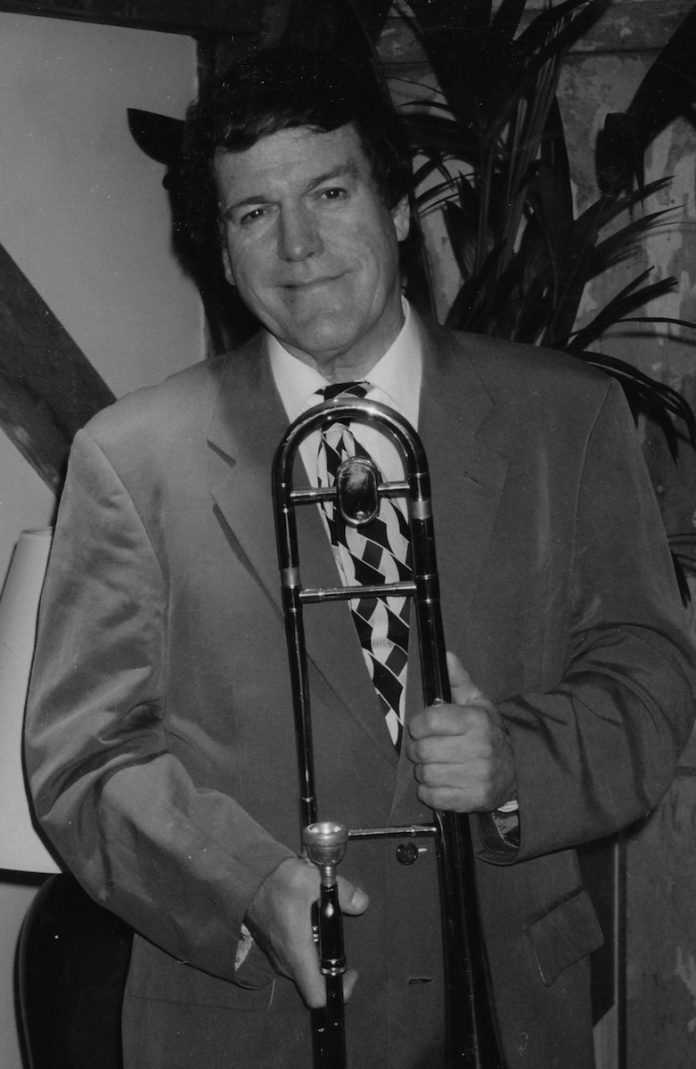A reunion
Like everyone else, I’m still under house arrest, hiding from the Plague. One of the few benefits of immobility, for me anyway, is the chance to bring some kind of order to the tottering piles of CDs – in corners of the room, or at least to try. This is the hiding place of items in the I Wondered What Had Happened To That category. The other day, one of them reunited me with an old friend. Campbell Burnap was virtually a neighbour of mine. We played occasional gigs together and spent a lot more time delightfully idling when we both should have been doing something else. The CD that I unearthed bears a title which more or less sums up Campbell’s notion of the ideal life: Good Buddies, Good Old Tunes. He was one of the most open-hearted, sociable people I ever met. The only problem with Campbell was prising him away from squads of good buddies at a gig, so we could get on with playing a few good old tunes.
Recorded in 2003, the CD was made to be sold at gigs. It was the first and only album to appear under the Glengarry label, Campbell’s home being in Glengarry Road, London SE22. The line-up is Campbell (tb, v), Enrico Tomasso (t), Ron Drake (ts, cl), Nick Dawson (p, v), John Rees-Jones (b) and Richie Bryant (d). Each of the 14 tracks (Dardanella, From Monday On, Emaline etc) would certainly have accorded with many a jazz lover’s idea of a Good Old Tune. It wasn’t all that long ago, 17 years, but I wonder how many would recognise those titles today.
Campbell Crichton Mackinnon Burnap died 12 years ago this month, 30 May 2008, leaving a big gap in many of our lives. There’s a handsome bench in Dulwich Park, bearing his name and many accomplishments. I think about him often.
A rediscovery
In the course of my rummaging about, I also came across, in a miscellany of early Armstrong, an old favourite: I’m Goin’ Huntin’. I’d forgotten that this 1929 recording was actually by Jimmy Bertrand’s Washboard Wizards, with Louis playing very simply, in a futile effort to conceal his identity. The result is spare, supple and every bit as elegant as I remembered. Johnny Dodds makes a perfect front-line partner to Louis, too, and wherever Dodds is to be found, can a washboard be far away? It is possible, I admit, to have just a little too much of washboard bands – the Washboard Ragamuffins, Dixieland Thumpers et al – just as it’s possible to have more than enough of early bebop. But when the former is enlivened by the clarinet of Johnny Dodds, or the latter by the tenor of Wardell Gray, they both light up and reveal the charm of their respective periods – which were, after all, only 20 years apart.
A renovation
Actually, I feel a bit of a fraud, complaining about being housebound by the coronavirus, since “working from home” is what I mainly do. Lately, this has included working on the collected BBC radio broadcasts of Barbara Thompson, writing the notes and generally helping out. I’m doing it because we’ve known each other for donkey’s years and she asked me. Also I know how to spell some of the people’s names. We started out with 10 CDs, but new discoveries kept turning up and we’ve ended with a box-set of 14.
The broadcasts cover the years 1969 to 1990. The amount of radio material recorded off-air by fans for their private collections never fails to amaze me. For as long as tape recording existed, especially on cassettes, there was this secret army of collectors squirreling stuff away. The recordings are rarely in the best of condition and often require a lot of work before they can be used. I had a letter from a leading expert in Germany, explaining the struggle he’d had with one particularly tough case: “I worked almost three weeks to paint away each single crack by hand on the screen – and now you can lean back and enjoy the music as never before!”
That’s dedication for you..
A regime (sort of)
I was talking to Art Themen on the phone yesterday, just catching up, and he tells me he’s set himself a routine for the lockdown. Every evening except Sundays, he plays outside his front door – three numbers a day, never repeating a tune. Didn’t that cause a crowd to gather?
“No, it’s a cul-de-sac. No passers-by, just the neighbours in front of their own houses. It’s not exactly a Ronnie Scott’s audience, but they’re very good. If someone asks for something I try to oblige. Someone requested Stranger On The Shore not long ago. The next day, I downloaded a backing track and struggled through it on clarinet.”
“What do they do on Sundays?
“Read poetry.”
Well, this is Henley-on-Thames.


